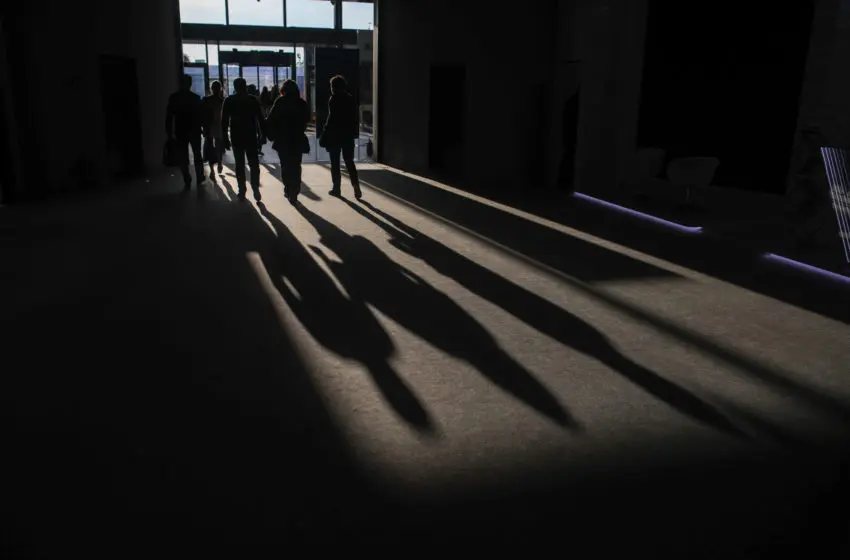In 2020, personal and diplomatic security protection isn’t just for heads of state. Increasingly, businesspeople are enlisting the help and services of professionals like Mike Ramirez, who provide personal and executive security protection in dangerous situations and places, whether at a conference abroad or in a warzone. We asked Ramirez to tell us about his job—and what business leaders should know about it.
Texas CEO Magazine: How did you get into the profession of personal protection?
Ramirez: I grew up about an hour southeast of San Antonio in a small town called Kenedy, Texas. From a young age I always knew that I wanted to be a Marine. In my senior year of high school, I contacted a recruiter who then came to talk to me about the Marine Corps at my parents’ house. After about an hour of the recruiter telling me all about what the Marine Corps had to offer and all the places I would get to travel to, I signed my contract, and the path to where I am today began. I spent the next four years as an Infantry Marine and a Security Force Marine. In the mid-1990s, I got my first taste of military personal protection while on a special duty assignment providing armed protection for a high-ranking officer. At that time, it wasn’t called “personal protection”—you were just a military enlisted man assigned to an officer because their rank warranted protection by a Marine.
After four years in the Marine Corps, I came back to Texas and went to work for the Texas Department of Corrections. I worked in a maximum-security state penitentiary in my hometown of Kenedy. My first year, I worked in administrative segregation, where offenders are locked up 23 hours a day because of hostile behavior or because they had threats on their lives. You’re worried about your own personal protection at that point. Needless to say, it was not a very cordial environment, but I learned a lot in my first year at the penitentiary. For one, I learned how to read people very quickly and that no two situations are ever the same. Nothing is what it appears to be when you walk into a cell block.
After my first year in administrative segregation, I took another position as a correctional field officer. As a CFO, you ride on horseback every day and take offenders to work out in the fields. The penitentiary I worked at sat on a large amount of land, so the prison used the offenders to do the labor and farm the land. We would take a squad of anywhere from 25 to 50 offenders per field officer and have them plant seeds and harvest crops.
Later, I was promoted to K-9 sergeant. My job was primarily breeding, raising, and training dogs to track humans. If an offender tried to escape from our prison or any other prison, we would deploy our human-tracking dogs to track and capture them. We also assisted local and state police with our K-9s. If they conducted a traffic stop and someone bailed on them, they would call us, and we’d take our dogs out and assist in capturing the suspect.
Texas CEO Magazine: That sounds a little more pleasant than administrative segregation.
Ramirez: It was! It was one of the most rewarding jobs and if I ever win the Lotto, I would go back and do it for free. Getting to ride horses all day and work with dogs was a very rewarding experience.
Around 2003, the war in Afghanistan had been going for a couple of years and the war in Iraq had started, I was still working for the penitentiary. I kept in touch with guys I had been in the Marines with. When I shared with them that I was working at a penitentiary, they would say, “Man, that sounds like a dangerous job for not very much money.” They went on to share with me about private military contracting. They informed me that the US government was paying former military guys, like myself, good money for the skills the Marine Corps taught us.
I thought, “Well, I’ll go give it a year, save that money, and come back and decide what I want to do next.” I went through the extreme vetting and grueling selection process, then headed to Iraq. Before I could blink, I’d been there 10 years. My first clients that I provided personal protection for were US civilian contractors who were rebuilding the infrastructure, water-treatment facilities, and power plants that had been damaged in the bombings during the beginning of the Iraq War. From there I went on to providing diplomatic protection for US ambassadors, secretaries of state, diplomats, senators, congresspeople, and many other government officials traveling in, to, and around Iraq.
We also provided 24/7 protection for the US ambassador assigned out of the embassy in Iraq. We conducted the advance surveys and risk assessments, coordinated the routes we’d be taking, put together evacuation and emergency plans should we come under attack, which we did on many occasions. When the war in Iraq kicked off, there became a need for former military guys like me with special skills to provide protection for designated government officials because our military was doing the offensive missions, tracking down terrorists and fighting the war on terror. Looking for the bad guys wasn’t our job. Our job was to protect those who we were assigned to. We weren’t looking for an engagement. Our job was to get the person we were assigned to protect to their meetings safely, keep them out of harm’s way and return them back to a secure location.
To read the full article click here
